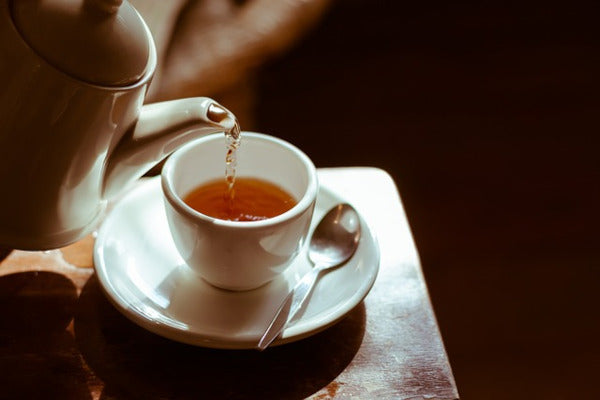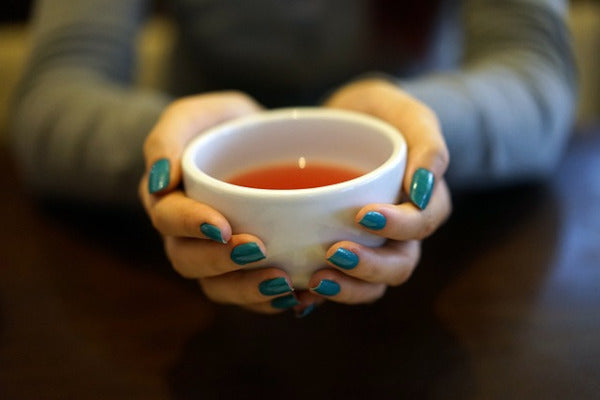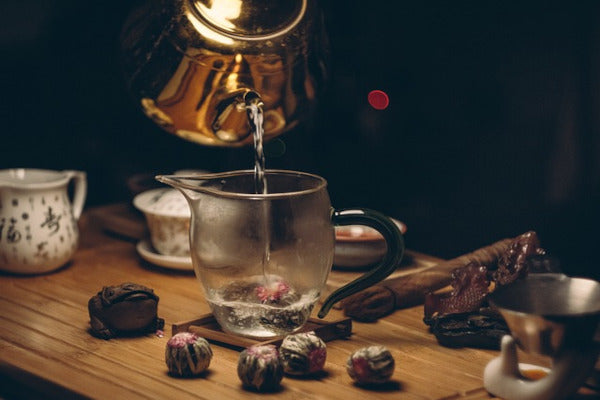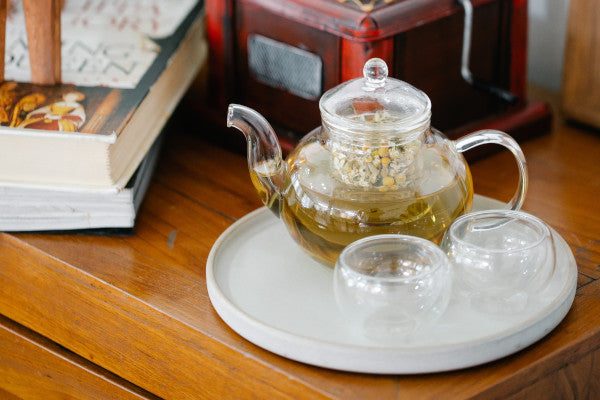Natural beverages have become very popular in recent years. Among them, black tea is one of the most recommended by doctors because of its health benefits. In this post, you can learn several facts about this beverage. Specifically, we'll share with you the caffeine content of black tea .
According to experts, black tea is one of the natural beverages with the highest caffeine content, which is why doctors don't usually recommend drinking it late at night to avoid insomnia. Every 100g of black tea contains approximately 20 mg of caffeine, which is quite high considering this tea is a medicinal beverage.
It's important to mention that this variety is the most oxidized of all the teas available. To prepare this beverage, leaves from a plant called Camellia sinensis are used. This plant is native to China but is now cultivated in many countries around the world.
One of the most striking characteristics of this tea is its aroma, which tends to be quite strong. As for its flavor, it's quite intense compared to other similar beverages. To drink black tea, you need to add sugar or another sweetener to be able to tolerate the taste. It's worth noting that this type of tea maintains its properties for a long time.
Benefits of caffeine-free black tea
Today, there are many variations of this natural beverage. One of them, which is quite popular these days, is decaffeinated. In this post, we'll share some of the benefits of caffeine-free black tea, so you can become more interested in including it in your diet. Read on and you'll learn a lot about it.

One of the main advantages of consuming this caffeine-free beverage is that it doesn't cause insomnia, so it can be consumed at night without any problems. In addition, it's scientifically proven that caffeine-free black tea doesn't cause heartburn, heart problems, or dehydration.
Although decaffeinated tea loses a considerable amount of antioxidants, many other benefits remain. Among these positive benefits is the burning of abdominal fat, which contributes to weight loss. In addition, black tea, although caffeine-free, contributes positively to bone health.
The mental health benefits of black tea are also preserved when the tea contains absolutely no caffeine. Among these benefits are the beverage's stimulating properties. In other words, drinking a reasonable amount of this beverage keeps the mind alert throughout the day, also promoting concentration and memorization.
Which contains more caffeine, black tea or coffee?
Due to the high amount of caffeine this beverage contains, many people wonder if it even contains more than coffee. According to numerous nutritionists, this beverage has more caffeine than black tea. A cup of this beverage, approximately 55 ml, contains about 50 mg of this substance.

A 55 ml cup of coffee, on the other hand, has a caffeine content of approximately 125 mg. For this reason, many health professionals recommend consuming much more tea than coffee to maintain good physical and mental health.
It's important to mention that consuming too much caffeine can cause certain side effects. Below is a brief list of the possible consequences of consuming beverages high in caffeine:
-Headaches.
-Nausea and dizziness.
-Anxiety.
-Dehydration.
Although caffeine also provides some benefits, it's much more advisable to drink decaffeinated beverages, which can also be included in many recipes, to enhance their flavor.
What teas have caffeine?
In addition to black tea, there are many other beverages that are also high in caffeine. It's essential to know what these beverages are, so you can avoid them and opt for decaffeinated beverages instead. Read on to learn more about the teas that contain caffeine.

One of the natural beverages also known for containing a considerable amount of caffeine is green tea. A 200 ml cup contains approximately 24 g. Matcha tea also contains caffeine, approximately 35 mg per 200 ml cup.
White tea is known for being one of the lowest in caffeine, with approximately 55 mg or less per cup. This is why it's one of the most recommended by health professionals.
Which teas do not contain caffeine?
As mentioned above, caffeine has some disadvantages. Although most teas contain this substance, there are also some that don't contain it at all. If you'd like to know which teas are best, continue reading and you'll learn this important fact.
Among the teas that contain absolutely no caffeine are the following:
-Ginger tea.
- Chamomile tea .
-Infused water.
These types of drinks generally have a much less bitter taste than those containing caffeine, so they don't require much sugar in their preparation. Another advantage of teas that don't contain this substance is that they can be consumed in larger quantities throughout the day, as they are not too harmful.
Oral health also benefits from drinking caffeine-free beverages. This is because this substance causes staining of teeth. Doctors generally recommend drinking caffeinated teas two to three times a day. As for caffeine-free beverages, you can drink four to five cups a day.
At our company, we are dedicated to providing the finest black teas for the hospitality industry . Our black teas are carefully selected from the finest producers around the world to ensure their quality and exceptional flavor.
At Tetique, we ensure that our black teas are fresh and of the highest quality. We work with a team of experts who are responsible for the preparation and packaging of our teas to preserve their freshness and flavor. We also offer a wide variety of flavors and aromas to meet our customers' needs.
We know that tea quality is essential for hospitality and coffee businesses. That's why we make sure our black teas are quick and easy to prepare, so you can offer them to your customers without delay.






